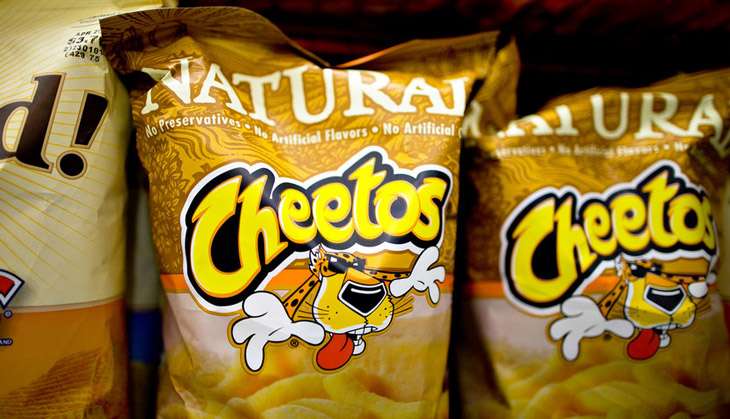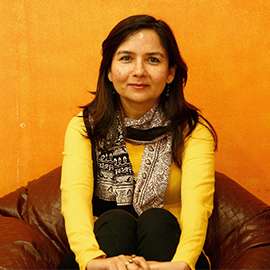We know you love natural food. But can you define it?

The world is swearing by the goodness of natural foods without quite understanding what natural is.
And India - the land where the vaids and the hakims traditionally categorised food into "cold" and "hot" roughly corresponding to the concept of good and evil - isn't far behind.
The world seems to be consciously attempting to do good by eating natural food. By shunning meat and processed foods. By turning vegetarian. Is natural then the new kosher?
And a natural food store, the new place of worship?Perhaps.
The figures are stark: 51% Americans have switched to natural food and are shelling out US $40 billion a year on these products. In India, the organic and natural food industry is growing at 25-30 percent annually with a projected growth of $1.36 billion by 2020. Alan Levinovitz, the author of 'The Gluten Lie' tells Catch that food orthodoxy is on the rise.
Also read - Exclusive: Indians at risk of bioterror as food regulator looks away
"As we become increasingly conscious of the negative human impact on the natural world, there will be more people attempting to do 'good' by eating 'natural' food," says Levinovitz, an assistant professor of religion at James Madison University.
He says there is a desire to restore Earth to its natural and original state and seek salvation from artificial and synthetic foods. From pesticides and chemicals. From sickness. From evil.
What is Natural Food
Unfortunately, we don't quite know what natural is.
Back in 1974, the Federal Trade Commission (FTC) proposed a simple definition - natural foods are those with no artificial ingredients and only minimal processing.
The public wasn't happy with the definition. The comments piled up with many linking natural with God.
In 1991, the Food and Drug Administration (FDA) invited inputs on the definition of "natural" underlying the widespread belief that natural foods are "somehow more wholesome". No standard definition emerged.
By 2009, there were lawsuits against companies for misleading people by selling synthetic ingredients in "natural" products. The Catholic church itself was in trouble for selling its bread as all-natural even though it contained baking soda - an agent allowed in organic products, writes Levinovitz.
It's 2016 now and there's still no clear definition of natural. Most people think natural and organic mean the same. That's the book that Levinovitz is now working on.
And that's also the project the FDA embarked upon recently - asking people to help it define the word "natural".
On its website, the agency said that "it is difficult to define a food product that is 'natural' because the food has probably been processed and is no longer the product of the earth."
Going Natural
In India, we swear by our herbal treatments. But are they really natural? Some traditional herbal remedies are laden with heavy metals which are carcinogenic. We also try and strike a balance between hot and cold foods to stay healthy, which may not have a basis in science at all.
"In a complicated world, it is hard for people to make informed decisions about how to act. We need simple rules for distinguishing right from wrong, pure from impure, good from evil. This is true in religions, where many foods are thought of as taboo, or evil," says Levinovitz.
But religion has little say in many lives now.
"Since religion no longer controls how people make dietary decisions, they are looking for new sets of simple rules to help with decision making about food. Natural versus unnatural is a perfect example. It looks scientific, but in fact 'natural', like 'good', is not a scientific term."
"I believe that many people do believe this, even if, instead of the 'devil' they think of 'unnatural modernity'-- and instead of the church, they think of a natural food store."
And will this madness for 'the natural' continue?
"Far be it from me to act as a prophet...it's a very dangerous profession. But I do believe that as we become increasingly conscious of the negative human impact on the natural world, there will be more people who will attempt to do 'good' by eating 'natural' food," says Levinovitz.
While what we eat is then not strictly dictated by religion, the notion of good and evil pops up every now and then in various ways.
"Every religion distinguishes in some fashion between good and evil. The content of these concepts is often different, of course, and that comes out in nutrition rules. Some religions prescribe vegetarianism; others ban certain meats but not others. Some ban alcohol, others don't. But the idea of good and evil, pure and impure, manifests virtually everywhere."
Redemption in 'Natural'

The distinction between natural and artificial dates back to at least Aristotle, writes Levinovitz.
In the 18th century, Jean Jacques Rousseau, the high priest of the Romantics, sought redemption in natural foods. For Rousseau, it was vegetarianism: "One of the proofs that the taste of flesh is not natural to man is the indifference which children exhibit for that sort of meat."
This idea gained traction in the 19th century, most famously in poet Percy Bysshe Shelley's 1813 essay A Vindication of Natural Diet, which blamed flesh-eating for disease, crime and depravity.
In the mid-19th century, health food pioneer Sylvester Graham advocated for vegetarianism, but also for the superiority of whole grains and natural, unprocessed foods.
Since then medical authorities have come to agree with Graham on the benefits of whole grains. Diets rich in highly refined carbohydrates or sugary drinks have resulted in health problems.
"It's no wonder that people are scared. Skepticism seems warranted - which means that faith in the most recent incarnation of 'natural' food, far from being irrational religiosity or a relic of the romantic past, might be a good way to keep ourselves and our families safe," writes Levinovitz.
Levinovitz interviewed philosophers and chemists to see if there was some kind of consensus on the definition of natural. It turned out that the professionals were no less confused or divided than the rest who batted for natural foods.
Yet natural is the ultimate panacea.
More in Catch - Revealed: the poison in your food FSSAI has approved
First published: 7 June 2016, 8:13 IST






![BJP's Kapil Mishra recreates Shankar Mahadevan’s ‘Breathless’ song to highlight Delhi pollution [WATCH] BJP's Kapil Mishra recreates Shankar Mahadevan’s ‘Breathless’ song to highlight Delhi pollution [WATCH]](https://images.catchnews.com/upload/2022/11/03/kapil-mishra_240884_300x172.png)

![Anupam Kher shares pictures of his toned body on 67th birthday [MUST SEE] Anupam Kher shares pictures of his toned body on 67th birthday [MUST SEE]](https://images.catchnews.com/upload/2022/03/07/Anupam_kher_231145_300x172.jpg)






